AoA_ University of Edinburgh
Monday 25th May 2015
Keynote Speaker: Simon Crichtley, PhD will lecture on ‘Memory Theatre‘
A piece of experimental fiction by Critchley published by Fitzcarraldo Editions in London. Jonathan Lethem writes about Critchley’s book, “Simon Critchley is a figure of quite startling brilliance, and I can never begin to guess what he’ll do next, only that it is sure to sustain and nourish my appetite for his voice. His overall project may be that of returning philosophical inquiry, and “theory”, to a home in literature, yet without surrendering any of its incisive power, or ethical urgency.” Memory Theatre was picked by the London Review of Books Bookshop as one of their six books of the year for 2014. Memory Theatre photographs by Liam Gillick .
Simon Critchley is Hans Jonas Professor of Philosophy at the New School for Social Research in New York. His previous books include On Humour, The Book of Dead Philosophers, How to Stop Living and Start Worrying, Impossible Objects, The Mattering of Matter (with Tom McCarthy), The Faith of the Faithless, Stay, Illusion!: The Hamlet Doctrine (with Jamieson Webster), and Bowie. He is series moderator of ‘The Stone‘, a philosophy column in The New York Times, to which he is a frequent contributor. Liam Gillick is a British artist based in New York. He was nominated for the Turner Prize in 2002, represented Germany for the 53rd Venice Biennale in 2009, and has taught at Columbia University since 1997. Public collections include: Government Art Collection, UK; Arts Council, UK; Tate, London; Museum of Modern Art, New York; Guggenheim Museum, New York; Hirshhorn Museum, Washington DC; Museum of Contemporary Art, Chicago.
Tuesday 26th May 2015
Keynote Speaker: Michael K. Jenson, PhD will lecture on ‘Mapping the Global Architect of Alterity’
Due to globalization, cultural spaces are now developing with no tangible connection to geographical place. The territorial logic traditionally used to underpin architecture and envision our built environment is being radically altered, forcing the adoption of a new method of conceptualizing space/geography and what constitutes architectural practice. Construction techniques, design sensibilities, and cultural identities are being transformed as technology transports us to places that were previously unreachable. The resultant “globalized” architect must become more than just an artful visionary, but also a master of the art of the political nudge willing to act within multiple mediums and at the simultaneous scales of a chaotic new world disorder. Though fearless they must also be responsible, inherently understanding the necessity to align bold visions with the mundane details of the everyday in ways that are culturally flexible and accepting of change. The potential for what must be considered the legitimate practice of the architect must move from a purely material venue to one more directly engaged in the chaos of the larger economic, political, and social spheres of a globalizing world.
Michael K. Jenson is an Associate Professor of Architecture and Current Associate Dean for Academic Affairs for the College of Architecture and Planning at the University of Colorado, Denver. He has practiced in Dallas, New York, Paris, and Denver and has worked on urban design/architecture projects in China, France, Germany, and the USA. Jenson’s research and teaching focus on the process of design and the cultivation of an “openness” towards the potential of unexpected outcomes as globalization leads us into unfamiliar territory. In short, his work seeks to explore the bridge between our increasing cultural interdependence and the rationalistic manipulation of our environments through the lens of the architectural endeavor in the process of globalization. His previous publications include: The Global Nomad: Navigating Mediated Space at a Global Scale in global media, culture, and identity; Process, Representation, and Architectural Agency in an Age of Complexity and Change; Power, Utopia, and the Manipulation of The Historical Consciousness: Perspectives from Collingwood; and A Globalized Studio Environment.
Keynote Speaker: Dorian Wiszniewski, PhD will lecture on ‘Architecture: Alterity as An Ethics of Visuality’
Hagi Kenaan[1] provides an analysis of Emmanual Levinas’ recurrent statement that “ethics is an optics.” Wiszniewski reworks Levinas and Kenaan on Levinas’s philosophy on the human face through architectural concepts of plan, section, elevation, face, frontality, façade and mask. However, rather than simply providing a series of metaphors [that may or may not enrich either a reductive or conventional understanding of architectural aesthetics], Wiszniewski proposes that the procedures of thinking these architectural concepts are irretrievably changed, altered, by deconstructing their conventional analytical position and then reconstructing them, through Levinas’ concepts of alterity, autrui, illeity and dis-inter-estment, as means by which we can elaborate architecture as situations for phenomenological politically active encounters.
Dorian Wiszniewski, PhD, is Director of the PhD by Design programme & Senior Lecturer in Architectural Design, Theory and Criticism at the University of Edinburgh in Scotland, UK. His research interests are architectural-political-philosophical overlaps on issues of architectural design, representation and production, in particular how this impacts theories and practice of ‘Community.’ The following concepts of community intersect through various research outputs: Borderland Community (Habermas); Extraterritorial Community (Levinas); Unavowable Community (Blanchot); Narratological Community (Ricoeur); Open Community (Agamben); Curating [Heterological] Community (Ranciere); and Ecosophic Community (Bateson and Guattari).
[1] Hagi Kenaan, The Ethics of Visuality; Levinas and the Contemporary Gaze (London/New York: I.B. Tauris, 2013).
Wednesday 27th May 2015
Closing Address: Mark Dorrian, PhD will lecture on ‘What’s Interesting?’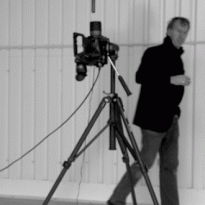
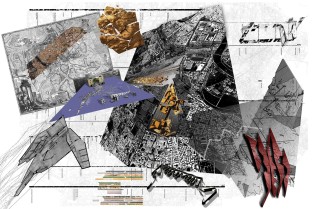
A celebrated aphorism – attributed to the renowned modernist architect Mies van der Rohe – runs, “I’d rather be good than interesting“. The phrasing suggests that, for Mies, it was possible to be one or the other, but probably not both at the same time. To be good meant to produce works of universally recognizable and enduring value, as opposed to ones that were likely to be mere curiosities, distractions soon to be passed over for something else. In design discourses today – and this is very striking in architectural studio pedagogy – this relation has been entirely overturned. What has happened, however, looks not so much like a switching around of the categories, as the complete absorption of one by the other: now it’s good to be interesting, indeed better than to be only ‘good’ (which is no longer what it used to be).
Reflecting on this, this lecture will consider the rise of ‘interesting’ as a critical category, and examine the sort of judgement-in-suspension that it seems to enact, addressing what kinds of issues might be at stake in it, and what it means in relation to our broader cultural expectations of architecture. The argument will develop with reference to the work of writers such as Theodor Adorno, Mikhail Epstein, Sianne Ngai, and Mario Perniola, relating the topic to theorizations of cultural boredom, distraction, and the enigma as the constitutive core of the artwork.
Mark Dorrian, PhD holds the Forbes Chair in Architecture at the University of Edinburgh. His work spans topics in architecture and urbanism, art history and theory, and media studies, and has appeared in publications such as Cabinet, Chora, Cultural Politics, the Journal of Architecture, the Journal of Narrative Theory, Log, Parallax, Radical Philosophy, and Word & Image. Mark’s recent books include the Seeing From Above: The Aerial View in Visual Culture (co-edited with Frédéric Pousin [2013]) and a forthcoming volume of collected essays titled Writing On The Image: Architecture, the City and the Politics of Representation. He is currently working on the political history of air-conditioning, and on a pamphlet on robotic weapons (Welcome to the Dronosphere) for the RETORT collective. Mark has been a visiting professor at the Arkitektskolen Aarhus (Denmark), University of Michigan (USA), and Tianjin University (China), and a visiting scholar at the Canadian Centre for Architecture in Montreal.
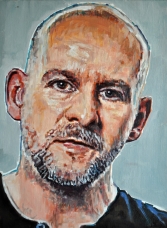
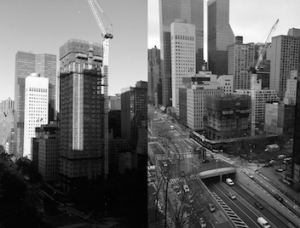
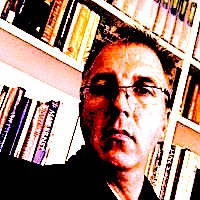
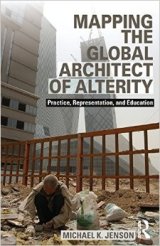
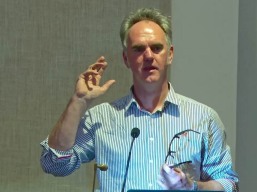
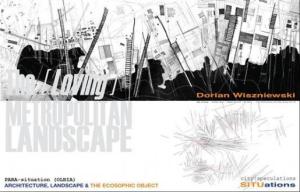
One thought on “AoA_Keynote Speakers”